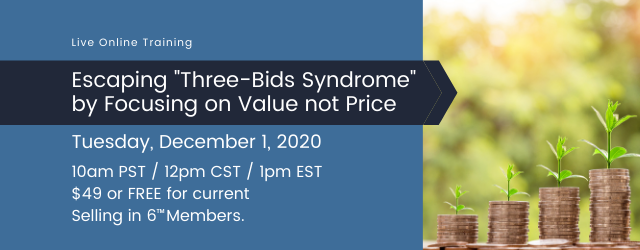Over the course of more than four decades of selling, I’ve steadfastly adhered to certain best practices for speaking with my prospects and clients. The following are a couple that I believe are relevant in every sales situation:

Allow prospects to complete their sentences.
After you’ve been selling the same product or service for a while, you’ve heard most of the common objections. The tendency is to say, “I’ve heard that” and you interrupt them mid-sentence as if you get extra points for answering before the question is completed. You don’t. You get points taken away for at least two reasons:
- The person doesn’t feel listened to, and that’s a really bad feeling.
- The objection may be slightly different from person to person. Your prospect may have been heading in a different direction. The fact that the first half of the sentence sounds familiar doesn’t mean you know where it’s going to end up.
So, what should you do in this situation? When you hear an objection that you’ve heard time and time again, just pause, if only for a couple seconds. Do not immediately come up with the answer. Your prospects want to feel as if they’ve been heard; some may even want the vicarious thrill of stumping the salesperson. They really want to know that they’ve hit you with a zinger and that you had to think about the answer. If you respond with an answer immediately, they’ll feel defeated. It never hurts to wait a second or two before you answer.
Reframe objections with positive language.
If a prospect expresses the fact that they don’t have enough money to fund the project, for goodness sake avoid saying, “I know you don’t have the money…” Instead say something like “I understand that we may have to be creative about making this affordable for you…” Never give any more energy to an objection by repeating it word for word.
If a prospect asks about the payback period, rather than saying, “It’s three and a half years but the savings-to-investment ratio is X,” put a positive spin on it by saying “It’s three and a half years, and I think what you’ll find to be more interesting is that the savings-to-investment ratio is X.” Now their ears are going to perk up at “…what you’ll find to be more interesting…” and you will have created an opportunity to hand them a metric that highlights the investment you’re proposing in its most positive light. Note that I use “and” rather than “but” when connecting the payback with where I’d like the discussion to move.







